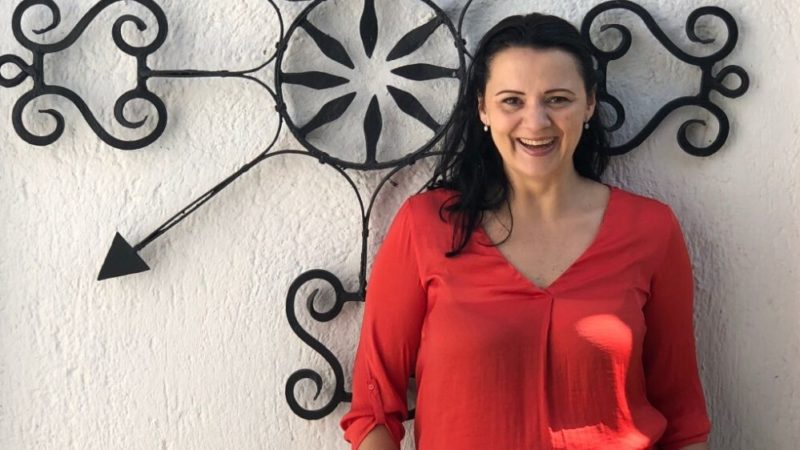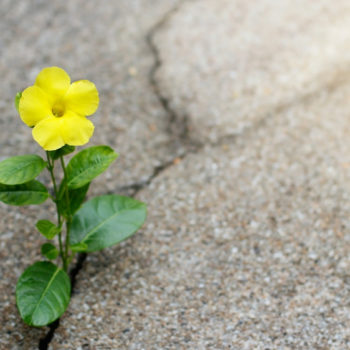
5 PRACTICES THAT HELPED ME STOP BEING A PEOPLE-PLEASER
This post appeared on Tiny Buddha.
“If you spend your life pleasing others, you spend your life.” – Cheryl Richardson
Looking back on my life, I came to realize that I spent quite a high amount of my precious time trying. Trying to be perfect. Trying to be appreciated and liked by everyone else around me. Trying to fit in with different groups of people so that I could feel accepted and approved of.
I can recall many situations in my life when I did things I didn’t really want to do to comfort or please others. I was a master of people-pleasing and, to be honest, it wasn’t always because I wanted to make everyone happy.
The truth is that I wanted people to like me. I expected them to give me the things I wasn’t giving myself: love, care, and attention.
People-pleasing is an unhealthy behavior, a clear sign of low self-esteem. It is disempowering, inauthentic, and extremely time- and energy-consuming.
Here are five simple practices that helped me stop being a people-pleaser.
- Allow myself to be me.
I can recall I once told a guy I was dating that I wanted to join him for a football match when, in fact, I didn’t. I knew he loved football, so I thought he would see me as the right partner and like me more. Big mistake.
If you’re also doing things you don’t want to do, hoping those things will strengthen your relationships, be careful with that. Be honest about what you like or dislike. Be real. Pretending and faking who you are and what you want will only work against you.
Being myself got me married. The day I had the first dinner with my husband (as friends at that time), I had no expectations of getting involved in a romantic relationship. I didn’t care if he liked me, I didn’t try to please him in any way because, to me, he was just a friend, not “a marriage prospect.” No lies, no mask, no hidden agenda.
He got to meet the honest, real me, and this was whom he eventually fell in love with. Authenticity is magnetic! Being genuine is a matter of choice, so I stopped explaining myself for what I want and for who I am.
If you also feel like wearing a mask when among people, I want you to know it is okay to be you. Your perfect imperfections make you special and unique.
Be your own kind of beauty. Stay true to your feelings, opinions, thoughts, and emotions. Live your own life, with no apologies and no regrets.
“Authenticity is the daily practice of letting go of who we think we’re supposed to be and embracing who we are.” ~ Brene Brown
2. Detach from other people’s opinions of me.
Did you know that the fear of public speaking comes first among all kinds of fears? Even the fear of death comes second! Most people don’t feel brave enough to show up in their vulnerability in front of others because they’re focusing more on what people might think about them than on the message they want to convey. I was there in the past, and whenever I had to hold a speech at work, it felt like torture.
Seeking validation from others turns us into their prisoners. In reality, we can’t control what other people feel or think, but we are in charge of our own actions, feelings, and thoughts.
When I know that what other people think of me does not define me, I set myself free from any judgment. What they see in me is their opinion. Some might perceive me as smart, funny, and talented. Others might think I’m an average public speaker or even a lousy one. To some, I might look pretty. To others, I might not. It’s all about their standards of beauty or intelligence, and it has nothing to do with me.
I do the best I know and the best I can every day. I love and approve of myself as I am, and other people’s opinions or validation of me is neither required nor needed.
If this rings a bell with you, please know you cannot please everyone, no matter how much you might try. Other people’s opinions of you are nothing but perception, filtered through their own lenses, expectations, or system of belief. Know you are worthy and beautiful, not because others think so, but because you decide to believe it.
“When I seek your approval, I don’t approve of the me that’s seeking the approval.” – Byron Katie
3. Set healthy boundaries with the outer world.
One of the most challenging things I had to learn was how to say no to things I didn’t really want to do, without feeling selfish, guilty, or overly worried that I might hurt or upset someone else. I struggled with this in my personal relationships (like when I saw a movie in town on a Sunday because a good friend had asked, even though my body only wanted to sleep and recharge), but not only in this area of my life.
This was a challenge at work, as well, whether I was saying yes to tasks that were not part of my job profile or volunteering to take on new projects when I already had a lot on my plate. But one day, I decided to speak up for myself and see what happened. Surprisingly, everything was just fine when I started telling people what I needed.
To me, setting healthy boundaries was a learned practice, and here’s where I am today:
Saying no doesn’t mean I dislike or reject the other person. I say yes to the person and no to the task. In reality, I know I can’t disappoint anyone. People disappoint themselves with the expectations they set for whom they want me to be and what they expect me to do. It’s always their story. If they truly love me, they would understand.
We teach people how to treat us by deciding what we will and won’t accept. I ceased letting anyone take advantage of me. I am not a doormat. It is not my responsibility to entertain other people and make them happy. Whenever I offer people time, I give them a piece of my life.
Today, I spend my precious time with people who bring the best in me, who support me and accept me just the way I am. Relationships in which we need to pretend are toxic. If I don’t feel at ease with people, I don’t change myself; I change the people.
Setting boundaries in a relationship might look selfish to the outer world. In reality, it is a form of self-respect, self-love, and self-care.
“No one can make you feel inferior without your consent.” – Eleanor Roosevelt
4. Assertive communication.
Often cases, I found it extremely difficult to say no only because I didn’t know how to express myself with clarity and confidence, fearing I could sound aggressive or impolite. I learned to say no with grace, without offending anyone.
Here are some simple formulas that always work well for me:
- It doesn’t work for me right now.
- I’m not able to make it this Sunday/this week/month/year.
- I’ve got too much on my plate right now.
- Thank you for thinking of me, I’m sorry I can’t at this time.
- It’s too bad I’m busy, but please let me know how it turns out.
- Perhaps another time, let me know what next week looks like for you.
- No thank you, but it sounds lovely.
“When you say Yes to others, make sure you are not saying No to yourself.” – Paulo Coelho
5. Become my own best friend.
For my happiness, I’m in charge. I stopped expecting others to make me happy and to fulfill my needs and desires.
I’ve made myself a priority in my own life. I engage in activities that bring me joy. I do more things for my heart and soul. This way, I create happiness from the inside out instead of chasing it through other people.
It is not my husband’s responsibility to make me feel valued, cherished, loved, whole, and complete; it’s mine.
Loving ourselves as a whole – mind, body, and soul – is not selfish; it is necessary. Being loved is a human need. However, being needy is something different. I came to understand that people who are taking good care of themselves are less dependent on the approval of others.
I pay attention to my self-talk. I eliminated disempowering words or thoughts from my repertoire: “I am stupid,” “I am too fat,” “I’m a failure,” “I’m not good enough.”
I treat myself with dignity and respect. I talk to myself kindly. I don’t call myself names and I acknowledge myself for my achievements, for my willingness to learn and grow. This way, my cup of self-love is always full, and external praise comes as a bonus.
I practice the art of embracing praise. I take compliments gracefully instead of putting myself down, as if I’m unworthy of such a celebration. I enjoy when people compliment me but I am not dependent on them to feel good about myself.
“It’s not your job to like me; it’s mine.” – Byron Katie
Once I decided to embrace myself with love and compassion, being alone didn’t feel scary or hard, and I started to enjoy my own company.
Just think from this perspective: Out of everyone you know in the world, the only person that is always present in your life, non-negotiable, day and night, is you. So if you don’t like being all by yourself, at least from time to time, you might need to work on the most important relationship you’ll ever get in life: the one with yourself.
To some people, the need to be alone could also be a personality issue, as introverted persons want to charge their batteries from the inside out and don’t always need to be surrounded by people. Meanwhile, I have met very extroverted people who suddenly didn’t need to spend so much of their time with others and started focusing more on themselves.
Being liked and included and feeling a sense of belonging to a community are basic human needs. As defined by Descartes, humans are “social animals.” However, many people use others as a diverting tool that helps them run from themselves.
I’ve been there as well in the past—spending time with others to feel seen or included or keeping the TV switched on all day long in my home, even if I wasn’t watching. In reality, I was using that noise to run from my own thoughts and emotions.
When we have a harmonic relationship with ourselves, we no longer look to other people to fill holes in our self-esteem. We need people but we aren’t emotionally needy. There’s a big difference between the two.
“You can never feel lonely when you like the person you’re alone with.“ – Wayne Dyer
Love, Sara
Want more useful tips and weekly inspiration?
Sign-up for my newsletter. - it's free!

- Posted by Sara Fabian
- On April 26, 2020



